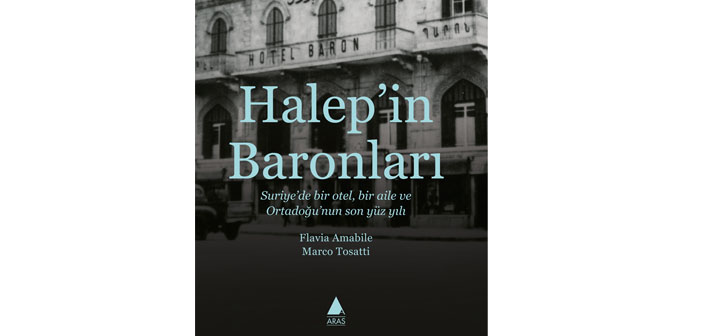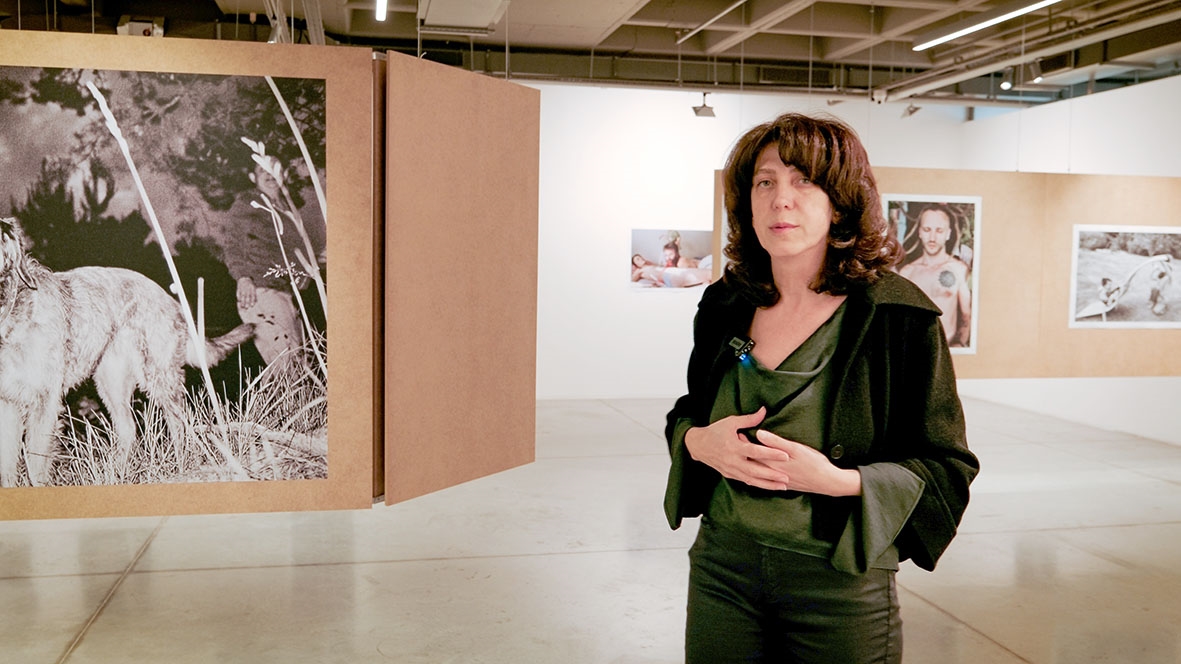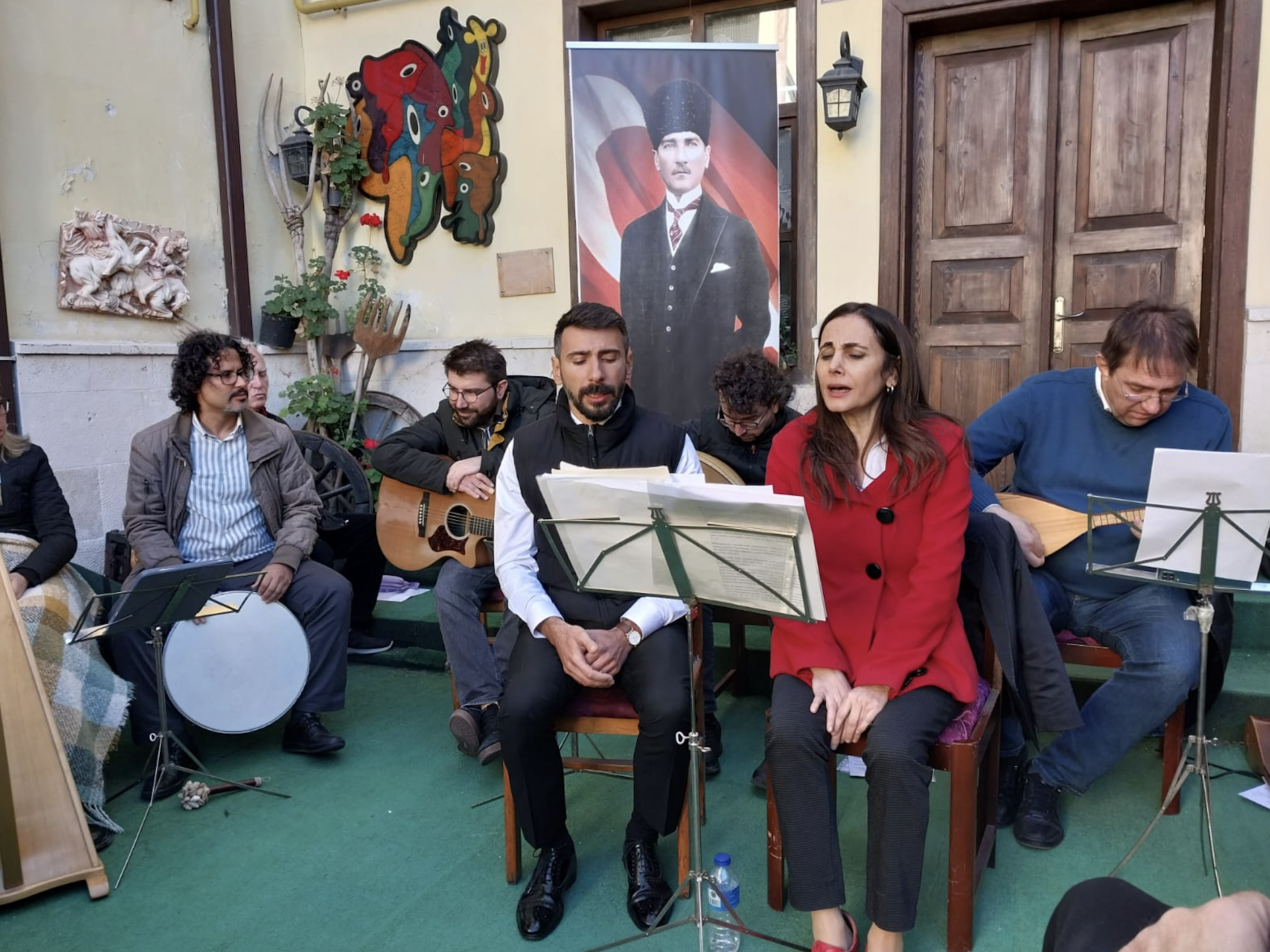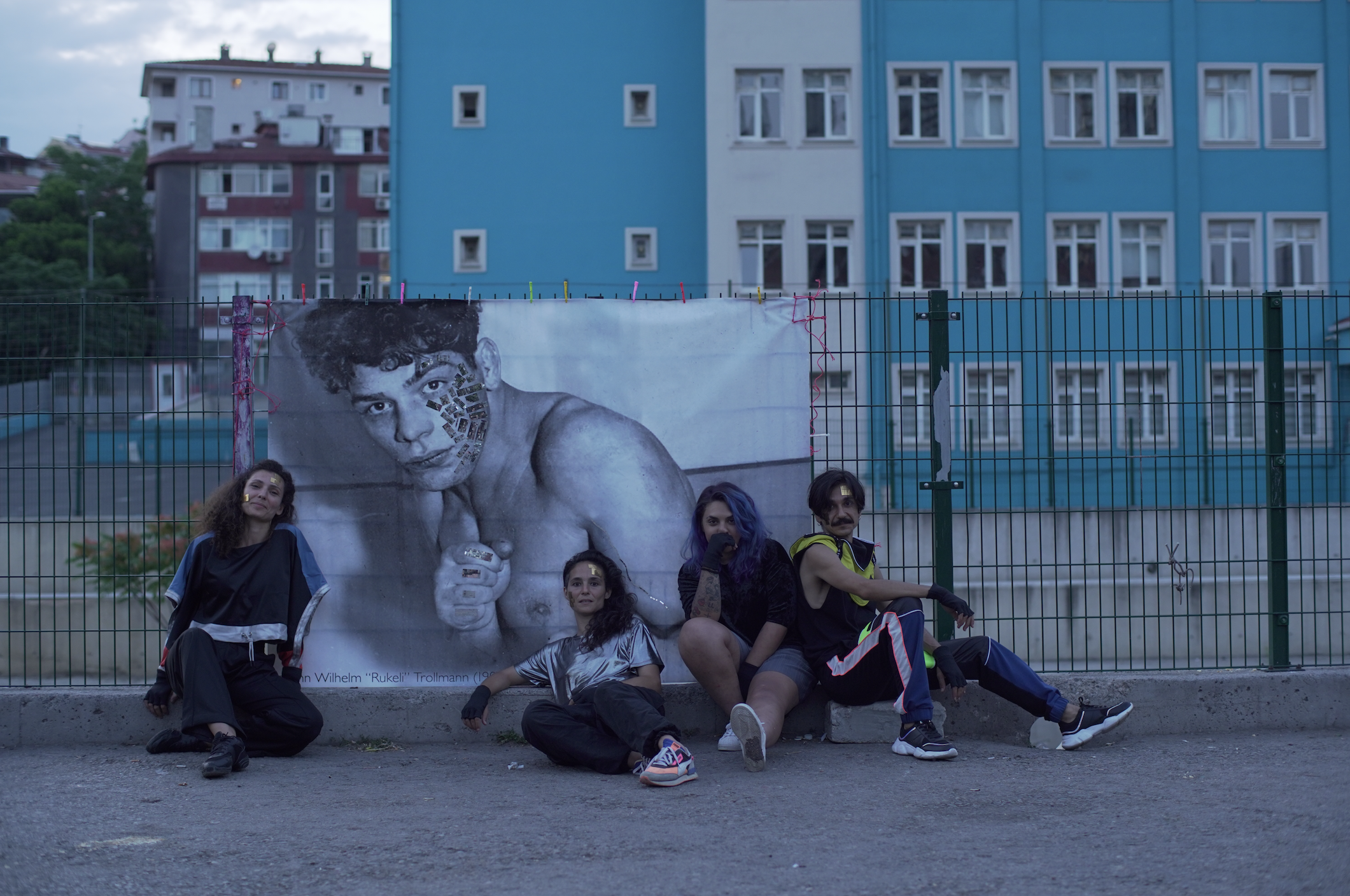The owner of the famous Baron Hotel, which was established in Aleppo in early 20th century by Mazlumyan family from Kayseri, Armen Mazlumyan passed away last week. Mazlumyan's loyalty to his family's heritage, his struggle for keeping Baron Hotel standing and his extraordinary life in Aleppo which he didn't abandon even during the war are subjected to “Barons of Aleppo: A Hotel in Syria, A Family and the Last Century of Middle East” by Flavia Amabile and Marco Tosatti.
Grandson of Baron Hotel's founder Armenak Mazlumyan, Armen Mazlumyan bade farewell to Aleppo, which he didn't abandon even during the war. Hosted many people who left their mark on 20th century, including Atatürk, Hafız Esad, Pier Paolo Pasolini, Agatha Christie, Krikor Zohrab and Lawrence of Arabia, Baron Hotel was like an oasis in the middle of the desert; it brought glory to Aleppo and its fate with ups and downs was parallel to the recent history of Middle East. Now that 65-old Armen Mazlumyan passed away, Baron Hotel's last basis is gone. “Barons of Aleppo” by Amabile and Tosatti, published in Italian in 2009, is a unique work which provide an insight to the fascinating story of the three generations of Mazlumyan family. We compiled the extraordinary biography of Armen Mazlumyan from this book.
A gentleman growing up
Armenak Mazlumyan left Ançırti, Malatya because of the massacres in Anatolia and migrated to Aleppo with his family and founded Baron Hotel in 1911. His son Koko (Krikor) got married to an English nurse on July 21, 1947. He had a son, Armen, and he raised him in accordance with European culture. When they felt bored with Aleppo, father and son were going to shores of Lebanon. While Armen was tasting the food from European cuisines and exploring the different cultures, his father Koko was fulfilling his longing.
With series of military coups starting from 1949, Syria's dream of democracy was put aside and Baron Hotel began to go through dark times. Foreigners' right to have shares in Syrian companies was restricted by some regulations and as a result, Mazlumyan family was about to lose the hotel.
When Armen was graduated from high school in 1968, glorious days was over both for Aleppo and Baron Hotel. Armen began to deal with the hotel. Though the glorious days was over, Armen hosted director Pasolini and his crew, who came to Aleppo for shooting 'Medea' movie. After a short while, he decided to work for Baron Hotel and do whatever he can for reviving it and he stood firm to that decision until he died; he didn't abandon the hotel, even when it was vacant or forced to be closed. As Amabile and Tosatti put in their book: “He was born as Baron and he will die as Baron.”
The fate changing with Hafız Esad
Everyone who come to power in Syria drops by Baron Hotel eventually. On January 9, 1971, a famous guest came to the hotel: Hafız Esad. Armen was reeving professional training in England with the support of his aunt and he came back to Aleppo for holidays. The hotel was faced with the confiscation threat; the furniture that Koko ordered from all over the world was about to be sold. Koko, with Armen, told this situation to Hafız Esad, who promised to help them to take the hotel back, guaranteeing that the furniture won't be sold. Though this struggle lasted for years, Esad eventually kept his word. Mazlumyan family reaped the benefit of their rooted friendships and hospitality during the times of crisis.
In 1973, Armen completed his studies and came back to the hotel, which was at the mercy of the trustees. He turned out to be a qualified man who speaks Oxford English. However, he had to get a permission from the trustees in order to work for the hotel that his family had founded. The trustees allowed him to work one day in a week, when the chief is on leave; thus, Armen's career at the hotel was started. He didn't have a say in the administration of the hotel; even his father's authority was limited. Though he was offered jobs in first class hotels in Aleppo, he preferred to stay at Baron and he became the administrator of the hotel soon.
In '70s, he avoided the attacks of the religious fanatics with a near miss and he decided to move to Damascus because of security concerns. However, this separation didn't last long; he came back home on Christmas morning and he had never left his hotel and family again.
In the early '80s, the hotel finally got rid of the invasion of the trustees and inspectors. The hotel, which became the property of Koko and Armen alone, shared the fate of the country. It struggled with military coups, various regimes and arbitrary treatments and maybe gave up at the end.
On November 2014, John Hutchinson from Daily Mail visited Armen Mazlumyan, who was 63 years old at the time. The photos of Armen and the hotel revealed the current condition of the both. The hotel, which was forced to be closed during the Civil War, was caught in the cross-fire. The clashes between the state and the rebels were taking place only meters away from the hotel. Though the hotel was still standing, the walls were ruined, the furniture got old and the glory of the hotel was long gone. Just like the building to which he devoted his life, Armen Mazlumyan also got older.
The shelter for the genocide victims
'Barons of Aleppo' provides an insight to Baron Hotel's story full of glory and struggle, as well as to the way the fate of Middle East was decided. In the “Gold Book”, which dates back to the time of Armenak Mazlumyan, there are the names of famous people, members of the royal family, artists and the prominent politicians of their times. This unprecedented hotel was used as quarters during the war, rulers made their victory speeches in its balcony, it hosted innumerable parades and was the target of terrorist attacks. The hotel, which was caught in the middle of the fronts of the war during the recent years, served as a shelter for both Krikor Zohrab and the genocide victims. The documents about the genocide was kept there. 'Barons of Aleppo' is a good example of research and alternative history narration, but it is also a book that would be read all in one breath.





